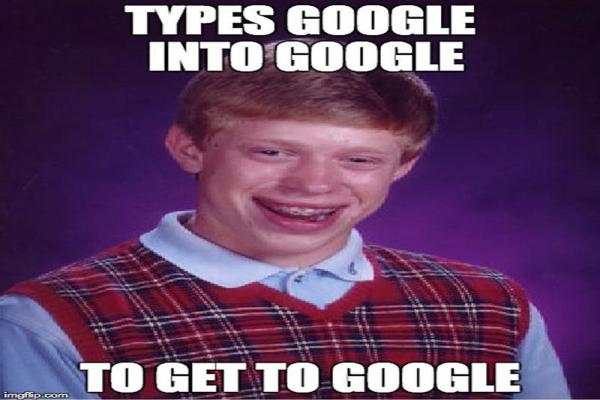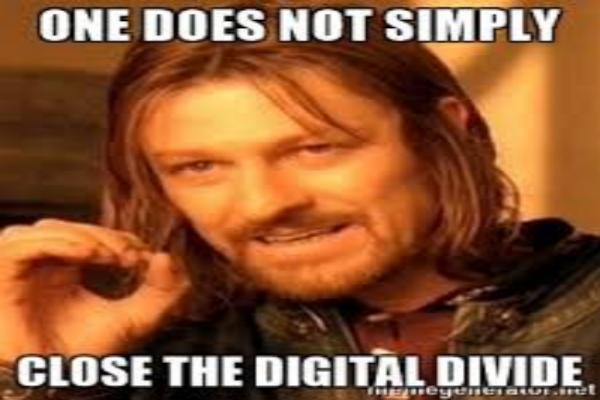What is a digital divide anyway?
It’s complicated. But we all knew it years ago.

I know lots of young people who still do this
</em></u>
Here is (from 2013!) a classification of the “digital divide that MATTER” that is very useful to understand how to approach this broad topic:
- raw internet access, albeit “the presence of a computer or phone or 3G connectivity in a community tells you very little about its impact”
- exchange: the split between people comfortable trading in streams of their personal information and people who aren’t
- identity: people who embrace a supercharged oneness with technology and people for whom it remains an external set of tools
- creation: between the people who can make and manipulate the technologies at the foundation of our world and those who can only use them.
Here are a few points and links to understand digital divide(s) even better. They are all relatively old, from 2012/2013. But that is the point of this post: we already knew, or should have known this stuff, a long time ago.
Digital divides are not about computers. They never were
Digital divides impact everything else, in different ways that… depend on money, as always happens: by having better access to digital tools rich kids learn to “think, behave, and make meaning in ways that will likely correlate with elite status and success in the future. Poor kids are not learning the same things”.
Even when they are present, correct technical notions are no help to young people from disadvanted families, because “You can’t write a CV on a smartphone”, or handle job applications, court orders or official email exchanges.

Digital Literacy Includes “Learning to Unplug”…
Because, once broadband is granted, “wasting time is the new divide”. And the digital divide that matters the most becomes, in the long run, the one between children whose parents limit their use of computers and devices and those whose parents can’t, don’t or won’t. Because children with lower incomes or less educated parents mayspend - or waste - “more time playing games, watching videos, and on other forms of passive entertainment than do their peers. Educational or job-related uses are rare”.
Before “learning to code”
To justify everyone learning about programming, you would need to show that most jobs will actually require this. But we don’t need everyone to code: “we need everyone to think. And unfortunately, it is very easy to code without thinking."
What works and is worth doing?
What works is using and teaching digital skill to solve problems people already have, and very often require everything but coding. What works is a “unique approach” that should not be unique, but be the standard since the arrival of computers for the masses: "[together with digital literacy, also] teach civic education, community building, empowerment and entrepreneurial skills [to face] community challenges including: economic development, human rights, health education, environmental protection and nonviolence”.
This applies even to adult “students”, and rural contexts. To see what I mean, read about the success of applying “digital education” directly to [existing community priorities about financial and contract data inside… Indonesian villages.
Who writes this, why, and how to help
I am Marco Fioretti, tech writer and aspiring polymath doing human-digital research and popularization.
I do it because YOUR civil rights and the quality of YOUR life depend every year more on how software is used AROUND you.
To this end, I have already shared more than a million words on this blog, without any paywall or user tracking, and am sharing the next million through a newsletter, also without any paywall.
The more direct support I get, the more I can continue to inform for free parents, teachers, decision makers, and everybody else who should know more stuff like this. You can support me with paid subscriptions to my newsletter, donations via PayPal (mfioretti@nexaima.net) or LiberaPay, or in any of the other ways listed here.THANKS for your support!